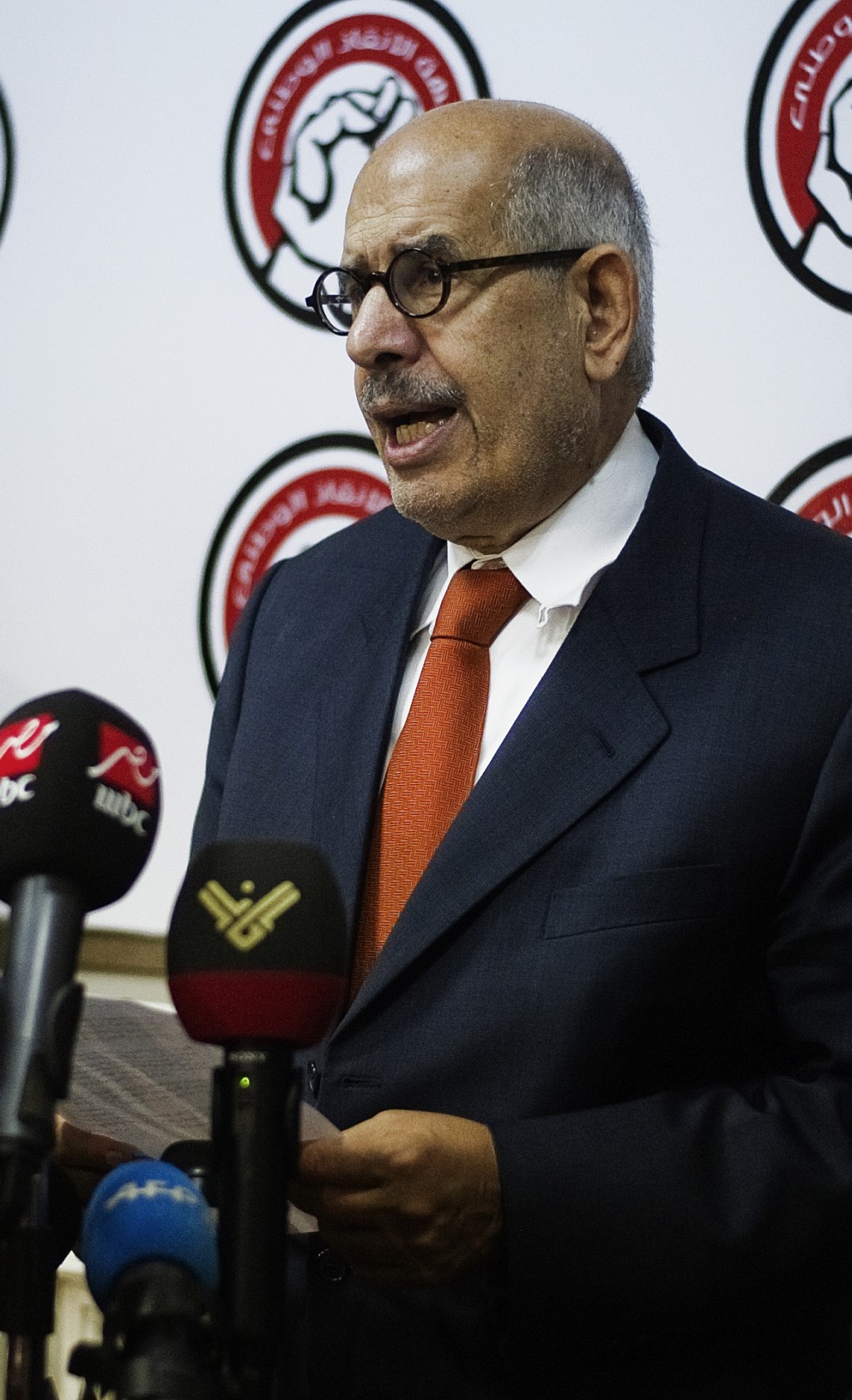ElBaradei Appointment Worries Israel

The decision of acting Egyptian head of state Adli Mansour on Tuesday to appoint former U.N. nuclear agency chief Mohamed ElBaradei as deputy to the president, responsible for foreign affairs, has reportedly caused concern among Israeli officials.
While ElBaradei, a Nobel Peace Prize winner, has the reputation abroad as a moderate, liberal voice, he is remembered with something less than fondness for his feckless handling of Iran when he was head of the International Atomic Energy Agency.
Some observers go so far as to blame ElBaradei for the strides Iran has made in building a nuclear weapon.
“I am worried about the appointment of ElBaradei,” former U.S. ambassador to Washington Itamar Rabinovich told Israel Radio. “For many years he was very comfortable for the Iranians, and without this softness I don’t think the Iranians would be where they are today [regarding their nuclear program]. I don’t think his intentions toward Israel will be comfortable, though this will have to be tested.”
Israeli government officials have been buttoned up on the crisis in Egypt, careful to take no sides publicly. But in 2009, their sigh of relief was audible in diplomatic circles around the world when he stepped down after 12 years as IAEA chairman.
“His record as head of the IAEA is one of reverberating failures,” one diplomatic official told The Jerusalem Post in December 2008, just prior to ElBaradei’s resignation. The official said that ElBaradei would be judged by the fact that during his tenure, Syria, Libya, North Korea and Iran all developed nuclear programs. “The IAEA failed in all four cases,” the official said.
Regarding Iran, ElBaradei argued that trying to block Iran’s nuclear program was useless, that it was just a matter of time before they would master the nuclear fuel cycle, and sanctions would not stop them. Rather, he said, sanctions would only unify the Iranian people around their regime. However, that claim may have been discredited in the recent elections in Iran, widely seen as a repudiation of President Mahmoud Ahmadinejad’s policies.
Israel found ElBaredi unhelpful on Syria as well. Following an attack against a nuclear installation in Syria in 2007, ElBaradei criticized the Israelis for taking “the law into their own hands.” He said that had Israel or the U.S. had any evidence of a Syrian nuclear site, they should have approached him about it as then-head of the IAEA.
In another Egypt-related item, a senior official told Israel Radio on Tuesday that the government expects President Obama to avoid repeating the mistakes of his “naive” policies toward the ousting of former President Hosni Mubarak in his handling of post-Morsi Egypt. He said he was hopeful that Washington would this time work to stabilize the situation by backing the military and its interim regime.
According to the source, Obama blundered by engaging in dialogue with the Muslim Brotherhood, betraying an important ally, which helped pave the way for the disastrous Morsi government.
An Israeli diplomatic source also warned on Israel Radio that the crisis in Egypt is likely to be protracted because the Muslim Brotherhood will not relinquish power without a struggle.
The official said that General Abdel Fattah al-Sisi, the commander-in-chief of the armed forces, is hoping that the Obama administration will not “nitpick” over whether a military coup was carried out. U.S. law mandates that foreign aid be cut off to a country in which the military removes a democratically elected government.
This article appeared in print on page 20 of edition of Hamodia.
To Read The Full Story
Are you already a subscriber?
Click "Sign In" to log in!

Become a Web Subscriber
Click “Subscribe” below to begin the process of becoming a new subscriber.

Become a Print + Web Subscriber
Click “Subscribe” below to begin the process of becoming a new subscriber.

Renew Print + Web Subscription
Click “Renew Subscription” below to begin the process of renewing your subscription.












